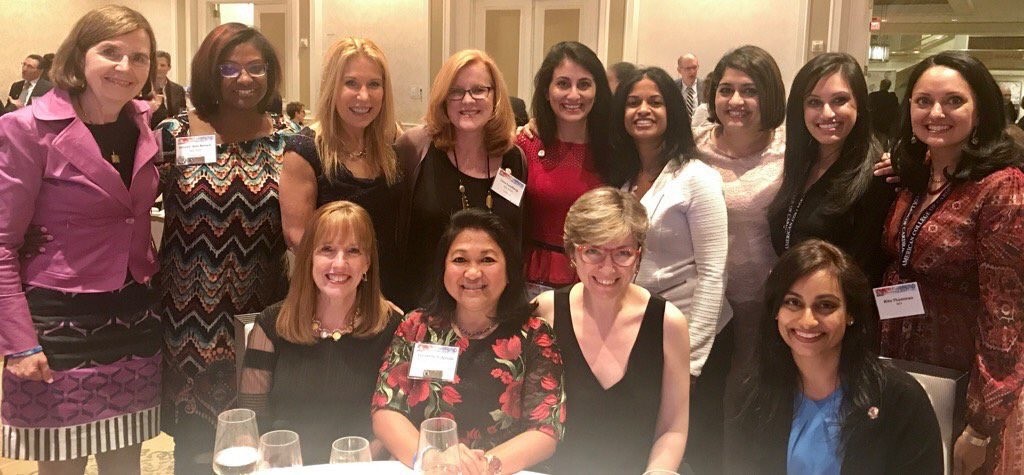Feature | WIC Workshop Recap Part 2: Was I “Ism-xplaining?”
This article was authored by Sherry-Ann Brown, MD, PhD, Fellow in Training (FIT) at Mayo Clinic in Rochester, MN.
In the Part 1 Recap of the ACC Women in Cardiology (WIC) Section Workshop, held last fall in Washington, DC, we confronted implicit or subconscious bias in ourselves, others, our fields of practice and society at large. In preparation for the workshop, attendees completed pre-conference tests on Implicit Bias: Gender-Career, Gender-Science and Race. Reflecting on the test results was a profound and meaningful experience.
Part 2 of this article goes into detail about the informative and inspiring sessions that took place during the WIC Section Workshop. To kick off the day, Sharonne Hayes, MD, FACC, held a session called "Advancing Women in Cardiology: Addressing Biases and Barriers Head On." She led everyone through a path scattered with various studies and papers on gender bias in medicine, science, business and education. In general, studies suggested that men were more hirable and offered higher starting salaries compared with women. Venture capitalists also described men as "very good innovators and already have money to play with" or "young and promising," while women were portrayed as "careless with money" or "young but inexperienced."
In letters of recommendation, women were likely described as “delightful” and a “team player,” whereas men were described as "brilliant" and a "hard worker." Women were expected to "make contributions to the field," while men were expected to "change the field." As such, expectancy bias is a social norm.
In online teacher reviews, men were described as "brilliant and genius," while women were described as "warm." Both men and women were similarly described as "available, kind and competent." A study among students showed that girls do worse on math tests if asked about gender up front than if asked at the end of test. To address this personal bias about ourselves, we were encouraged to "activate other identities;" for example, "I am not a woman walking into the board meeting, I am a cardiologist walking into the board meeting!"
This incredible session was followed by a panel composed of Ada Stefanescu, MD, MSc; Rachel Lampert, MD, FACC; and Kristin Burns, MD, FACC, discussing "Secrets to Securing Grant Funding: Tips, Insights and More." Members were schooled on considering and procuring mentors and cultivating mutual allies. The speakers also reviewed types of National Institutes of Health (NIH), Veterans' Administration, Department of Defense, and other governmental and non-governmental foundation grant funding and approaches to securing funding. Attendees were introduced to a myriad of helpful information available and encouraged to hone in on "the NIH Guide" to read about grant opportunities. The NIH RePORTER Database also was recommended, particularly the MatchMaker function, to enter one’s research (proposal) abstract and search for others grants or projects. This feature provides additional useful information such as who was funded for what topics related to yours, how much money was awarded and who comprised the study section that felt the projects were worth funding.
Eliza Lo Chin, MD, then guided the audience through "Leadership and Mentoring in Medicine." She walked through various types of leaders and situations requiring different paradigms of leadership. Self-awareness and self-management, coupled with social awareness and relationship management, provide a tremendous balance for great leadership, regardless of the leader style inspired by each situation or circumstance. Everyone enjoyed Stephen Covey's 4-Quadrant rule for optimizing time management: urgent and important (crisis), important and not urgent (quality), urgent and not important (deception), and not urgent and not important (waste). If anything had to be eliminated in this rule, items in the “waste” quadrant should be eliminated first. The overarching theme of the session was that leadership is a journey, not a destination.
The WIC Workshop was rounded out with a panel on "Dancing Your Way to Your Dream Job: Steps Every Woman Cardiologist Should Know" by Claire S. Duvernoy, MD, FACC; Sandra J. Lewis, MD, FACC; Poonam Velagapudi, MD, MS; and Annabelle Volgman, MD, FACC. A few male colleagues also joined the insightful session as we laid on the table challenges, strategies and victories in women’s progress during each stage of medical training and practice, including those specific to the field of cardiology.
Some tips from the day to always remember are: pick your battles, cherish your true friends, do an excellent job, let go of things that are trivial, know your self-worth as a physician and colleague, and mentor others. We also were advised on the importance of mentoring male colleagues, as together we can "de-bias" and prevent the negative effects of implicit bias.


